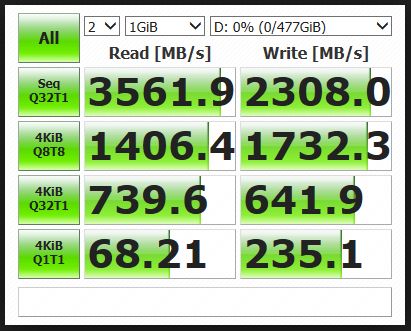
Unfortunately, that's neither very repeatable, nor is it simple to analyze. The most realistic way to test and benchmark disks is, of course, to just use them and see what happens. Unfortunately, the actual workload of a typical disk doesn't look like that-and that "simple speed test" doesn't reproduce a lot of the bottlenecks that slow down disk access in real-world systems. Admins and enthusiasts have for decades been tempted to just "get the big number" by reading or writing a large amount of data to a disk, getting a figure in MB/sec, and calling it a day. Random 4K performance was also excellent with ~82 MB/s read and ~192 MB/s write on both drives at a queue depth of 1.Further Reading How Ars tests Wi-Fi gear (and you can, too)Storage benchmarking-much like Wi-Fi benchmarking-is a widely misunderstood black art. The Samsung NVMe driver is said to be not needed for this series. Keep in mind that this is with the Microsoft Windows 10 NVMe driver. The 1TB model is rated at 7000 MB/s read and 5100 MB/s write so we were just below the drives rated speeds. CystalDiskMark:īenchmark Results: The Samsung SSD 980 Pro 2TB drive came in with scores of 6754 MB/s read and 5019 MB/s write on CrystalDiskMark 7. Note that CDM only supports Native Command Queuing (NCQ) with a queue depth of 32 (as noted) and shows the highest score of five runs. CrystalDiskMark 7.0.0 圆4ĬrystalDiskMark is a small benchmark utility for drives and enables rapid measurement of sequential and random read/write speeds. The two drives with the Phison E18 controller top this chart with ease, but the Samsung 980 PRO series is just behind as is the WD_BLACK SN850. ATTO Disk Benchmark:īenchmark Results: On ATTO Disk Benchmark found that the Samsung SSD 980 Pro 2TB NVMe SSD reached 5.07 GB/s write and and 6.27 GB/s read at the standard queue depth of 4. The test was run with the default runs of 0.5KB through 64MB transfer sizes with the total length being 256MB. It measures raw transfer rates for both reads and writes and places the data into graphs that can be very easily interpreted. ATTO measures transfers across a specific volume length.

ATTO is one of the oldest drive benchmarks still being used today and is still very relevant in the SSD world.


 0 kommentar(er)
0 kommentar(er)
